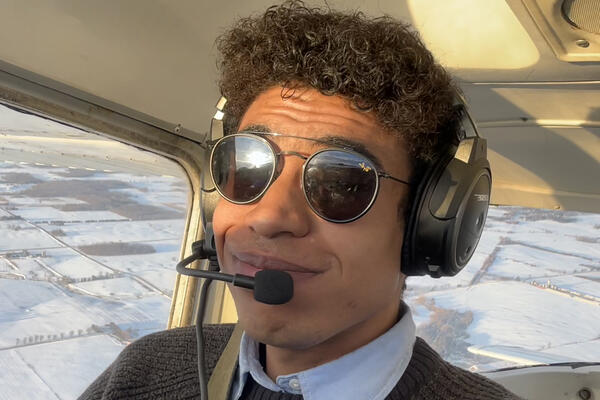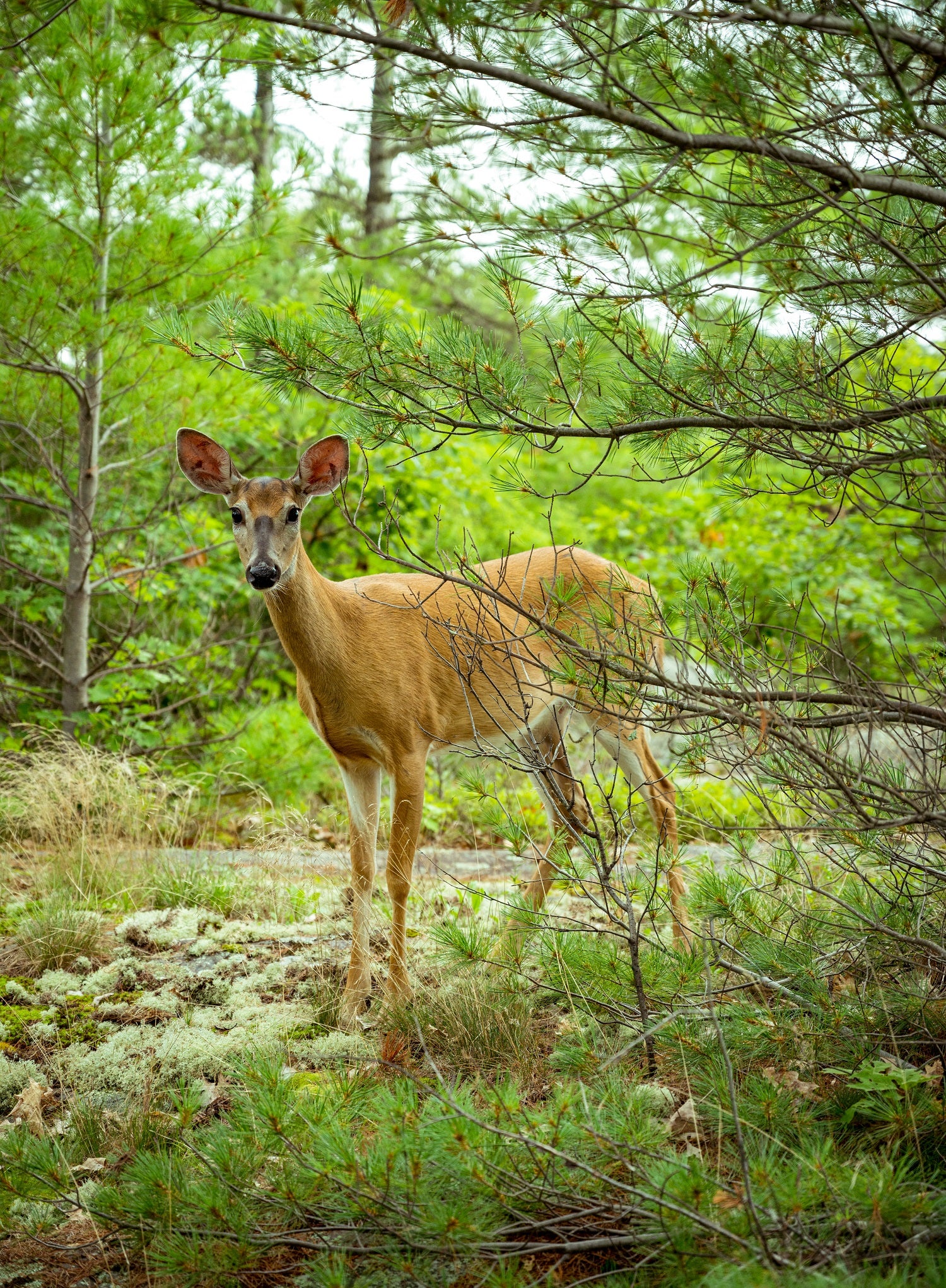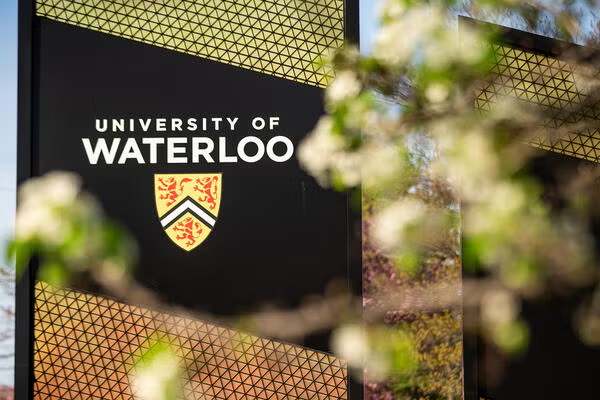
Becoming a pilot isn’t the final destination – it’s just the beginning
Geography and Aviation student Jaden McGregor shares the highs and lows of pursuing his degree

Geography and Aviation student Jaden McGregor shares the highs and lows of pursuing his degree
By Chantal Vallis Faculty of EnvironmentFor Jaden McGregor, a student in the Faculty of Environment’s Geography and Aviation program, taking to the skies was a way to pursue his two passions – adventure and photography.

“After visiting Australia and Japan, I found that my skills and interest in traveling and photography grew,” says McGregor. “I never saw myself working at a desk, so pursuing my pilot’s licence seemed like a good fit for the type of life I wanted.”
But pursuing this goal hasn’t always been easy and Jaden had doubts that aviation wasn’t for him. As the sole Anishnaawbe and Jamaican student in the program he was cognizant of being the only person. He was also worried that the motion sickness he experienced in cars and dislike of roller-coaster would plague him in the skies. Then, when he failed his written Commercial Pilot License test, the doubts increased.
“I was pretty devastated when I failed the test and wondered if I could really do this,” says McGregor. “But I talked to my family, girlfriend and friends to get my motivation back. I also reached out to Noreen Newton, an industry expert that visited my class as an industry mentor. At the end of term, she encouraged us to stay in touch with her.”
The advice she gave Jaden helped him see that he wasn’t alone in struggling with the rigorous testing in aviation. She encouraged him to see those failures as a learning experience and retake the exam when the time was right. After a few hard-earned tries, he passed.
"My community really supported me and Noreen’s reassurance that every pilot goes through similar struggles with these tests helped me to push through,” says McGregor. “It was a big hurdle I had to contend with, but now that I am on the other side of that challenge, I feel more confident.”
As for Jaden’s other concerns, he says it’s very rare that he experiences nausea in the sky. He’s had the privilege of completing flight training at Billy Bishop Airport (Island Air) and at the Waterloo Wellington Flight Centre.
“There is nothing like practicing circuits at Billy Bishop Airport. You’re facing the CN Tower just before you are coming into land and below are the people and places that I love. It’s home so nothing beats it,” adds McGregor.
"This is from my flight up to Timmins Ontario on what we call the 300 Nautical Mile flight, which is one of the requirements for the Commercial Pilot License. It was a big milestone for me, plus I got to fly over the town my grandmother grew up in and see Manitoulin Island from above; my reserve is on the island and a place I’ve gone many times with family but only in the summer."
"This flight is from my first night cross country alone or solo as we call it. I did a flight over Toronto to Oshawa because I wanted to do something comfortable for me on my first night flight away from the Waterloo. It was again special to see home light up at night."
This year Jaden was selected as a recipient for the TD Scholarship for Indigenous Peoples, an honour that serves as another confidence boost and will help him cover the financial cost of his studies and flight training – ensuring that he sees his goal through to the end.
“The award has helped me shift my thinking from ‘if I can do it’ to ‘when I do it’,” says McGregor.
Now entering his fourth year of studies, Jaden is in awe by how much he has learned and it’s not lost on him that everyone struggles with doubts and challenges in the industry. It’s part of the reason that he volunteers in the first practical aviation class that students take at Waterloo, AVIA-101, and wants to pursue flight instructor training so that he can eventually teach.
“Pursuing this dream is a humbling experience because you are always learning and growing. Becoming a pilot isn’t the final destination — it’s just the beginning.”

"I took this photo a few years ago on a family trip to my grandmother's home town. As I was walking down the street, I saw this dear and I followed them into the forest and we stood face to face for what felt like an hour. It was probably less time, but being face to face with this beautiful animal which has a culture significance to me was special. In a way, it felt like my ancestors where reaching out to me as at the time I was studying for my Private Pilot license written test."
All photos showcased were taken by Jaden. You can follow Jaden on Instagram @jaden.mcgregor or check out his personal photography website.

Read more
Here are the people and events behind some of this year’s most compelling Waterloo stories

Read more
Meet the 14 exceptional students representing Waterloo’s newest grads

Read more
From regenerative medicine, closed-loop health monitoring, Indigenous approaches to architectural design and more, the funding supports future-focused projects
The University of Waterloo acknowledges that much of our work takes place on the traditional territory of the Neutral, Anishinaabeg, and Haudenosaunee peoples. Our main campus is situated on the Haldimand Tract, the land granted to the Six Nations that includes six miles on each side of the Grand River. Our active work toward reconciliation takes place across our campuses through research, learning, teaching, and community building, and is co-ordinated within the Office of Indigenous Relations.